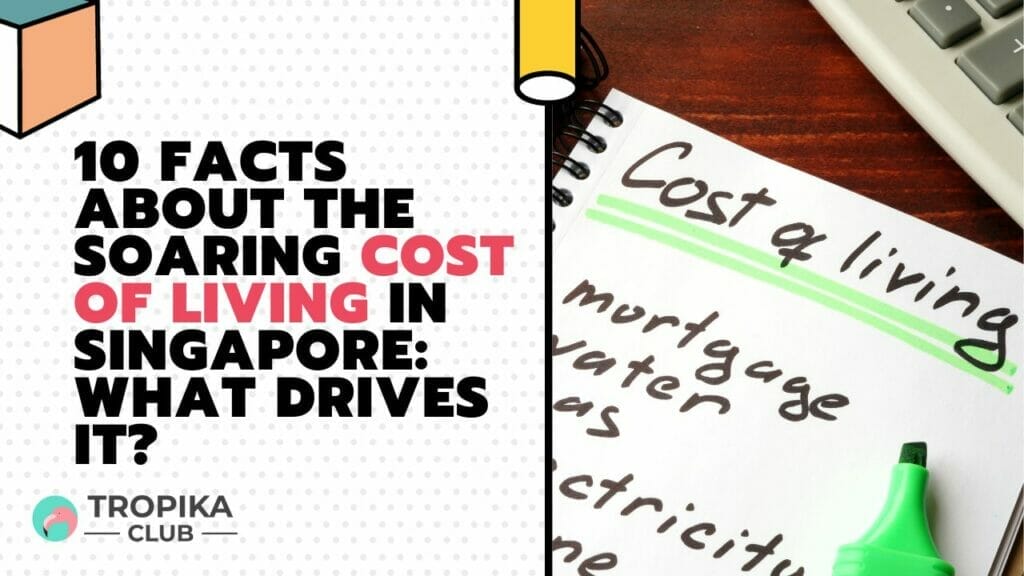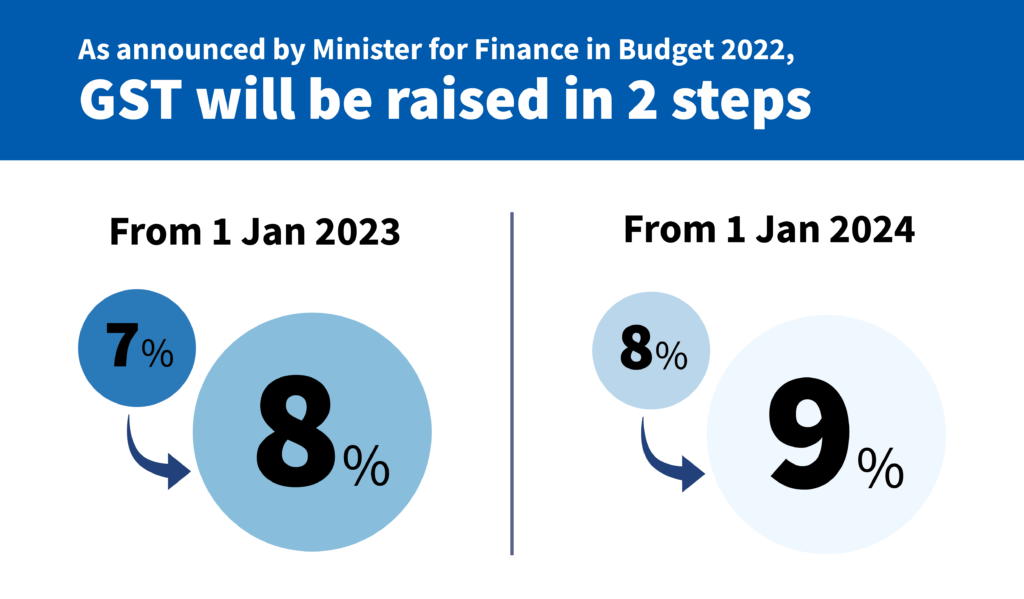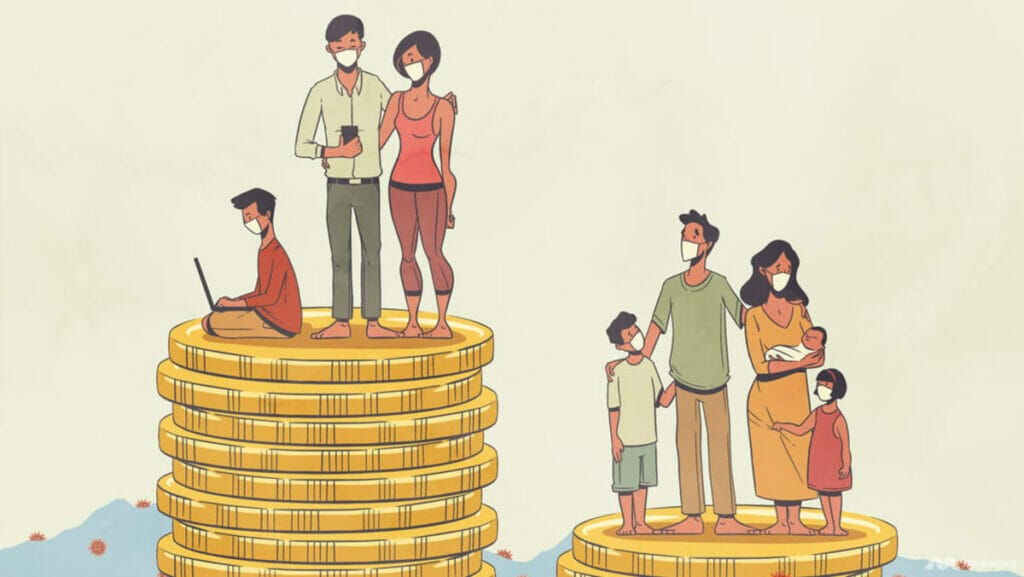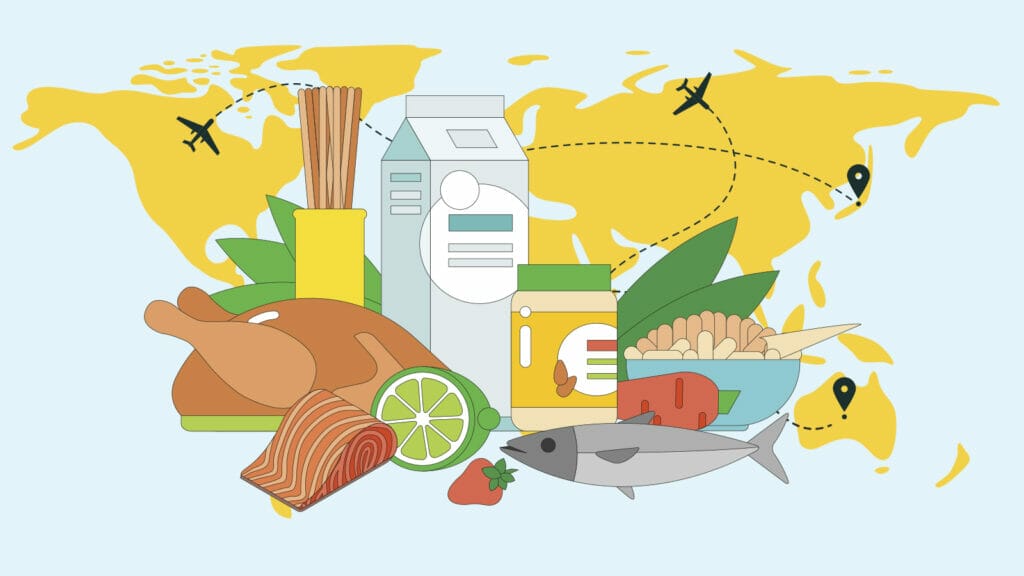10 Facts About the Soaring Cost of Living in Singapore: What Drives It?

No Time to Read? Here’s a Snappy Summary of This Article
- Skyrocketing Housing Prices: Singapore’s cost of living surge is fueled by exorbitant housing costs, burdening residents and expatriates alike.
- Lavish Lifestyle Taxes: Luxurious living in Singapore comes at a hefty price, with high taxes on cars, fine dining, and more.
- Unyielding Inflation Pressures: Inflation grips the city-state, amplifying expenses for essentials, from groceries to healthcare, creating financial strain.
- Competitive Education Expenses: Singapore’s world-class education system demands a premium, escalating the financial strain on families aspiring for quality education.
- Robust Job Market Dynamics: While a booming job market attracts talent, it also propels living costs, contributing to the financial tightrope in Singapore.
- Government Policies and Global Influences: Striking a balance between national policies and global economic forces, Singapore grapples with a complex web of factors driving living expenses.
Table of Contents
- No Time to Read? Here’s a Snappy Summary of This Article
- 1. Housing Costs
- 2. Expensive Education
- 3. Healthcare Costs
- 4. Transportation
- 5. High Food Costs
- 6. Utility Bills
- 7. Goods and Services Tax (GST)
- 8. Wages and Income Inequality
- 9. Dependency on Imports
- 10. Social Lifestyle and Peer Pressure
- Meanwhile, Check Out Tropika Club’s Ecosystem of Websites
Introduction
Singapore is a land of many wonders – from its awe-inspiring skyline to its gastronomic delights. However, one thing that’s also awe-inspiringly high is the cost of living in this bustling city-state. Whether you’re a local or an expatriate, this is a hot-button issue that directly affects your pocket. Understanding what drives these costs can offer some relief, or at least, a sense of preparedness. In this article, Tropika Club Magazine presents 10 critical factors that contribute to the soaring cost of living in Singapore.

1. Housing Costs
One of the biggest expenditures for most households in Singapore is housing. Whether you are renting or purchasing a property, the costs are significantly high. The scarcity of land, high demand, and governmental policies contribute to this. For instance, public housing flats under the HDB scheme may appear affordable, but the limited supply means long waiting times and competitive prices. Private residential units, while readily available, come with a steep price tag due to their often luxurious features and prime locations.

2. Expensive Education
Singapore has a reputation for its high standard of education. But quality comes at a price. From tuition fees to enrichment classes, the costs add up quickly. Both local and international schools in Singapore are expensive, with fees ranging in the thousands per semester. Many parents also opt for additional tutoring services to keep their children competitive, adding another layer of expense.

3. Healthcare Costs
Healthcare is another sector where expenses can mount up swiftly. While Singapore boasts a world-class healthcare system, its cost is increasingly becoming a concern. Government subsidies do help, but the remaining amount can still be substantial, particularly for specialized treatments or long-term care. Insurance plans are also an added expense, making healthcare in Singapore a critical point of discussion.

4. Transportation
Owning a car in Singapore is a luxury many can’t afford due to the high Certificate of Entitlement (COE) prices and additional taxes. Even if one opts for public transportation, the fares can add up quickly, especially if commuting daily for work or school. Taxi fares and ride-hailing services also contribute to high monthly transportation expenses.

5. High Food Costs
Dining out in Singapore may offer a culinary adventure, but it can also lead to a thinner wallet. While hawker centres offer more affordable options, frequent dining at mid-range to high-end restaurants can be costly. Grocery shopping isn’t cheap either, with many products imported and subjected to various taxes, pushing up the cost of everyday items.

6. Utility Bills
Utility bills, including electricity, water, and gas, have been rising steadily over the years. Government taxes and the cost of producing these utilities contribute to the rising expenses. Sustainable or green energy solutions like solar power are still in the infancy stages in Singapore, which means relying on traditional, costlier forms of energy.
_
Read Also:
10 Facts that Reflect the True Cost of Living in Singapore
_

7. Goods and Services Tax (GST)
The Goods and Services Tax (GST) in Singapore is a significant contributor to daily expenses. Currently, at 8%, this tax applies to almost all types of goods and services, from your morning coffee to your new smartphone. Every purchase, big or small, is affected, making GST an omnipresent factor in the cost of living.

8. Wages and Income Inequality
While Singapore has seen considerable economic growth, not everyone benefits equally. Wages have risen for higher-income groups, but not as much for those on the lower end of the economic ladder. This income inequality reflects in the ability of different households to cope with the increasing cost of living.

9. Dependency on Imports
Being a small island nation with limited natural resources, Singapore is heavily dependent on imports, from raw materials to food items. This dependency makes the country vulnerable to global economic fluctuations, affecting the prices of common goods and contributing to the cost of living.

10. Social Lifestyle and Peer Pressure
Singapore’s status as a global city means exposure to various cultures and lifestyles, sometimes creating social pressure to “keep up.” From fine dining to luxury shopping and overseas holidays, societal expectations can lead to increased spending, further pushing up the individual cost of living.
Conclusion
In conclusion, the high cost of living in Singapore isn’t due to one single factor, but a complex interplay of issues like land scarcity, quality services, and societal pressures. While some of these may be beyond your control, knowledge and awareness are your first steps towards navigating this financial maze. Stay woke, lah!

Frequently Asked Questions (FAQ)
Q: Why has housing become so expensive in Singapore?
A: The surge in housing prices is driven by factors like limited land, high demand, and government policies.
Q: How do government policies impact the cost of living?
A: Government policies play a pivotal role, influencing housing, education, and economic dynamics that contribute to rising living costs.
Q: Can you elaborate on the impact of inflation in Singapore?
A: Inflation exerts pressure on essentials, raising the cost of groceries, healthcare, and daily expenses for residents in Singapore.
Q: What role does the job market play in the rising cost of living?
A: Singapore’s robust job market attracts talent but also fuels living costs, creating a delicate balance for its residents.
Q: Are there specific taxes contributing to the high cost of living?
A: Yes, taxes on luxury items like cars and fine dining add to the overall expense of a lavish lifestyle in Singapore.
Q: How does the education system impact the cost of living for families?
A: Singapore’s world-class education system commands a premium, adding financial strain to families aspiring for quality education.

Have an Article to Suggest?
Tropika Club is always looking for new and exciting content to feature in their magazine and they value the input of our readers. If you have any noteworthy content or articles that you believe would be a great addition to Tropika Club’s magazine, we are open to suggestions and encourage you to reach out to us via email at [email protected]. By doing so, Tropika Club values your expertise and knowledge in the matter and appreciates your willingness to help. We will review your recommendations and update our list accordingly
Meanwhile, Check Out Tropika Club’s Ecosystem of Websites

Tropika Club Magazine – Tropika Club Magazine is a Singapore-based publication that features articles on a wide range of topics with a focus on local businesses and content for the region. The magazine emphasizes supporting local businesses through its #SupportLocal initiative, which includes coverage of everything from neighborhood hawker stalls to aesthetic clinics in town. In addition to highlighting local businesses, Tropika Club Magazine also covers a variety of local content, including beauty, lifestyle, places, eats, and what’s on in Singapore and the Asia Pacific region.
Tropika Club Deals – Tropika Club Deals is a leading online deals and voucher shopping site in Singapore, offering amazing discounts on beauty, wellness, and fitness products and services. It’s the perfect platform for customers who want to discover the best deals without having to commit to a specific appointment date and time. These deals are available at major beauty stores, facial salons, hair salons, and other brands in Singapore, with no minimum spend required. Choose from guaranteed discounted deals in the categories of hairstyling, hair removal, facial & aesthetics, body slimming, brows & lashes, nails & makeup, massage & spa or fitness & wellness. Tropika Club Deals is also ideal for customers who want to buy vouchers as gifts or to use for the future. So whether you’re looking to save money on your next haircut or want to treat yourself to a relaxing massage, Tropika Club Deals has got you covered with the best voucher and coupon deals in Singapore!




